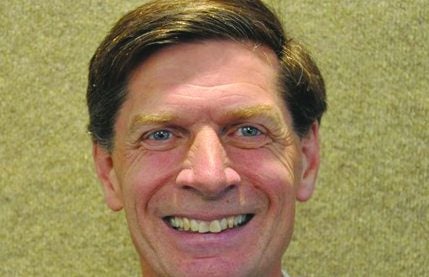Earley: Are we making good use of our freedom?
Published 9:29 am Friday, June 30, 2017

- Al Earley
Have you ever wondered what it was like for the 56 men who signed the Declaration of Independence?
Perhaps you have read this letter Benjamin Rush wrote to John Adams on July 20, 1811, recalling that amazing day that changed the course of history.
“Dear Old Friend, The 4th of July has been celebrated in Philadelphia in the manner I expected. The military men, and particularly one of them, ran away with all the glory of the day.
“Scarcely a word was said of the solicitude and labors and fears and sorrows and sleepless nights of the men who projected, proposed, defended, and subscribed the Declaration of Independence. Do you recollect your memorable speech upon the day on which the vote was taken? Do you recollect the pensive and awful silence which pervaded the house when we were called up, one after another to the table of the President of Congress to subscribe what was believed to be by many at that time to be our own death warrants?
“The silence and the gloom of the morning were interrupted, I well recollect, only for a moment by Colonel Harrison of Virginia, who said to Mr. Gerry at the table: ‘I shall have a great advantage over you, Mr. Gerry, when we are all hung for what we are now doing. From the size and weight of my body I shall die in a few minutes, but from the lightness of your body you will dance in the air an hour or two before you are dead.’ This speech procured a transient smile, but it was soon succeeded by the solemnity with which the whole business was conducted.” (SOURCE: William J. Bennett. Our Sacred Honor: The Spirit of America. New York: Simon and Schuster, 1997).
Col. Benjamin Harrison V was indeed one of the largest founding fathers, and Elbridge Gerry was one of the smallest. Both men did better than many during the Revolutionary War. Harrison’s home and possessions were destroyed by traitor Benedict Arnold, though Harrison was able to elude death as he and his family escaped at the last moment.
Gerry was a successful merchant from Massachusetts, and played key roles in raising money for the army. Though his businesses profited during the war, he was never accused of profiteering, and donated large sums to fund the Army personally.
Other hardships that these brave men and their families endured include five signers who were captured by the British as traitors and tortured before they died. Twelve had their homes ransacked and burned. Two lost their sons serving in the Revolutionary Army, another had two sons captured. Nine of the 56 fought and died from wounds or hardships of the Revolutionary War. They signed and they pledged their lives, their fortunes, and their sacred honor.
Some may debate the details of the sacrifices the founding fathers made, but that they made great sacrifices there is no question. As we celebrate our nation’s independence let us be grateful that God could use their courage and suffering to raise up a nation that has spread God’s Word and love around the world. I am reminded of Jesus’ words in John 15:13, “Greater love has no one than this: to lay down one’s life for one’s friends.” John Q. Adams, a signer of the Declaration of Independence, wrote, “Posterity! You will never know how much it cost the present generation to preserve your freedoms. I hope you will make good use of it.”
Is there anything you would lay down your life for? Do you think you understand how precious the gift of freedom is? Do you think you are making good use of it? How? Do you think this generation is making good use of our freedom? This July 4 I hope these questions will be a topic of discussion as you celebrate the amazing country God has given us.
To find out more about Al Earley or read previous articles, see www.lagrangepres.com.



